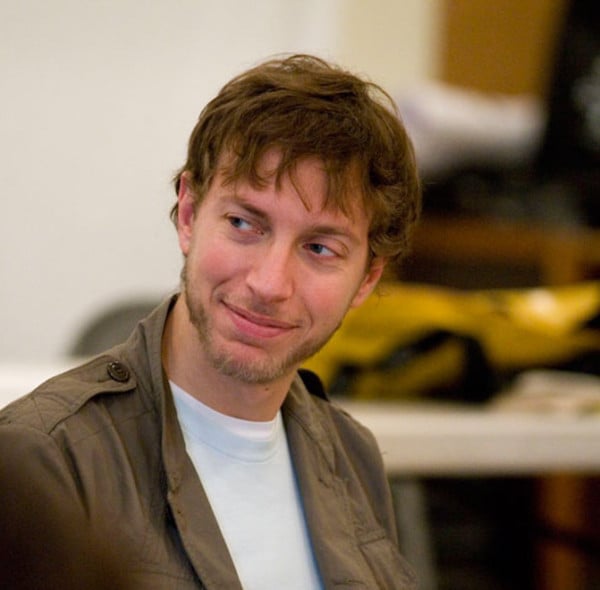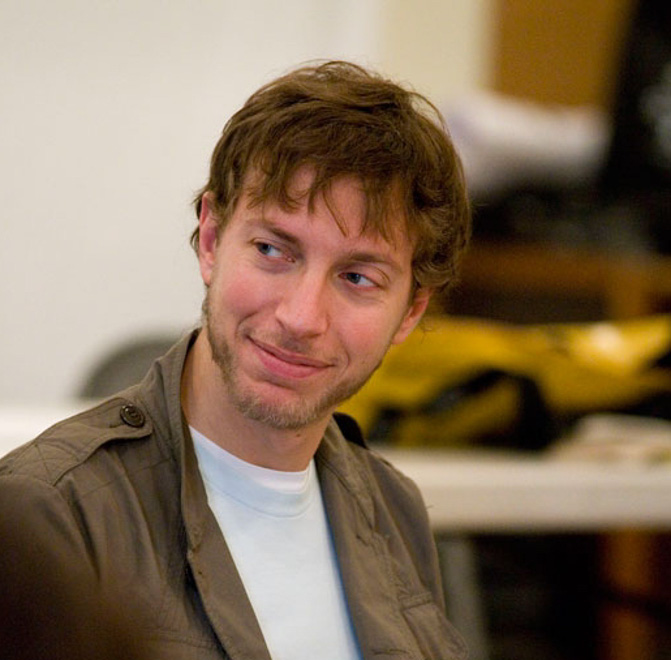
Michael Friedman never seems to stop working. Currently a research resident at the Stanford Arts Institute, Friedman is working on three new musicals: “American Pop,” a commissioned work from the Oregon Shakespeare Festival about the history of American Pop Music; “Pretty Filthy,” a musical about the adult film industry that is about to open at The Civilians Theatre in New York; and “Unknown Soldier,” a musical about World War I.
Taking on several projects at once has served Friedman well. His musical “Bloody Bloody Andrew Jackson” developed a cult following and eventually opened on Broadway in 2010. He has had the opportunity to work with some of the best theaters in the country, including The Public Theater, American Repertory Theater, Playwrights Horizons and Woolly Mammoth Theatre.
I spoke with Friedman about his writing process, his body of work, and his take on the cancellation of the production of “Bloody Bloody Andrew Jackson” at Stanford.
The Stanford Daily (TSD): What do you think about the state of American musicals today?
Michael Friedman (MF): I think everyone is always lamenting the decline of American musical theater. Sort of like the American novel – there’s always a better period 20 years ago, 25 years ago, 50 years ago. I think in a lot of ways, right now, it’s incredibly healthy. More people are writing them. More people — certainly on college campuses and [at] high schools and everywhere — are performing them.
TSD: Do you think musicals could or should be doing anything differently?
MF: I feel all of us could be pushing the form harder. I wish that I felt like there was about to be more of a breakthrough. I think the question of how contemporary music sounds and could sound in the theater has not been solved. You don’t hear many musicals that sound like music that you hear anywhere else.
TSD: What does your writing process look like?
MF: I really work best in a collaborative process – I’m not that great working by myself. I wander off course very easily. Generally, with collaborators like Steve Cosson and the Civilians or Alex Timbers, we kind of separate — I go write things and they go write things, and then we come back together and see what happens when you put it together.
Sometimes, I write best in reaction to [Alex] Timber’s jokes. [For “Bloody Bloody Andrew Jackson”], he said, “I think we need an opening number.” And I said, “Well, what’s the show about? What are we doing?” And he was like “I don’t know… something like populism or something?” And I was like “Okay, so I’m just going to write a number that’s called ‘Populism, Yea, Yea?’” And the next day I came in and said “…So, I wrote a number called ‘Populism, Yea, Yea!’” Often your worst idea is your best friend. Never underrate your bad ideas that might be good ones.
TSD: Although you have a background in classical music, you incorporate pop, emo rock, and folk into your musicals. What draws you to writing in such diverse musical styles?
MF: Usually, when I’m writing a show, I try to figure out the world that I want the show to live in and live in that world for a while. And once I’ve listened to that music, read that poetry or realized what that world’s going to be, I then try to put that away. The joke about “Bloody Bloody” is that there are only about two numbers that would pass muster with any real emo rock fan… The rest of it is totally not. But, it is what it is — it’s the product of someone who thought about emo rock a lot and then put it away and said, “Okay, I’m going to write a show about Andrew Jackson!”
TSD: While your musical “Bloody Bloody Andrew Jackson” received a successful Broadway run, mostly excellent reviews — Ben Brantley of the New York Times said, “There is no show in town that more astutely reflects the state of this nation than “Bloody Bloody Andrew Jackson” — it has been the subject of several protests by the Native American Community. A production of the show here at Stanford was canceled recently due to complaints from the Native American Community. Would you like to comment on this?
MF: We had some really unbelievably emotional and intense roundtable discussions with various Native American playwrights, leaders of some tribes, and representatives in New York. Getting to sit down and talk, I would say, for Alex and me, was very hard, and also helpful to hear. The only thing I can say is that I stand by that show, and I am very, very proud of that show. I can also say that the subject matter of the show causes people some enormous pain. And I therefore accept that there are a lot of people who wish the show didn’t exist. I completely understand that they wish that. I wrote it, so I am glad it exists, but I also… I get it. I completely understand why the subject matter of our show would be that upsetting to people. And I think that’s a question, whenever you’re making work, that you really have to think through. I take no pleasure in the fact that I know the show has made some people really unhappy.
TSD: Is their unhappiness simply a reaction to the challenging subject matter?
MF: I would say that that was a particular case and a particular subject matter that was particularly tough. And I think for everyone in America it is a thing that we have not even begun to reckon with, really. So, that’s where I’m like, to a certain extent, bring it on because we need to be hearing… there are a lot of voices that we need to be hearing from more, and I think that the American theater is a place that we should be hearing from those voices much more. I think that if that could be an outcome of any of this discussion or protest, then that would be amazing.
Contact Steve Rathje at srathje ‘at’ stanford.edu.
